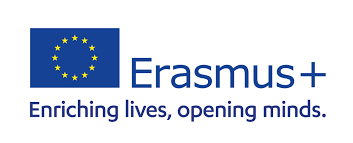Due to the travel restrictions of the Covid pandemic we started our project with two online meetings.
On December 16th 2020 all students met during the first online meeting to start working on the project. The meeting was led by The Netherlands. Students interviewed each other about their schools, towns and countries as well as their different experiences with the pandemic. The Dutch invited two external speakers, Howard Lettinga and Sophia Gruner, for a lecture on intercultural communication skills by NoBlaBlah. To us communication is key in understanding each other, including opposing views.
Getting to know each other was part of the first online meeting. For this, students conducted interviews within their international groups. The interviews focused on the schools, towns and country specifics as well as Covid-19 since it had become a big part of the students‘ lives and it was interesting for them to share their experiences and emotions. The aim was to prepare a presentation – not about your own school/city/country – but about your partners‘ schools/cities/countries. Below you find a few of the results.
Food production and consumption
Students investigated food consumption patterns and behaviour and production from various angles, taking into account the various perspectives of major players in the “food chain”, such as consumers, producers, retail, research centers, government. They answered the question “What can I do?” since they realise that their own choices and actions are influenced by – but can also influence – others.
A second online meeting in collaboration with the Hogere Agrarische School (agricultural university of applied sciences) in Den Bosch was held in January 2021 on the topic of food waste and what can be done to reduce this. For more information about it you can click here.
From June 18th to 25th 2022 we finally traveled to The Netherlands for our first LTTA (pupil meeting). And what fun we had!
Energy production and consumption
The focus of this meeting was investigating the triangle of:
- Energy production
- Energy security
- Sustainability
At this pupil meeting in Germany (September 18-25, 2022) students covered this pressing matter in order to drive change.
Waste management
Students focused on waste sorting and disposal. They investigated the challenges, promoted good practices and encouraged initiatives to drive change in attitudes and habits.
Plastics
The 4 Rs of plastics (rethinking, refusing, renewing and recycling) were investigated by students to understand the challenges in society, and appreciate the perspectives of others.
Additional Sustainability Activities
During the course of the project we have conducted several sustainability activities at our schools to raise awareness aboutdifferent areas of sustainability (food consumprion and production, energy consumprion and production, waste reduction and disposal and plastics) among other pupils and teachers.
Examples of this are:
− Cleaning up a park and a beach


− Setting up an eco-group and eco-stall to recycle used clothing

− Conducting sustainability workshops for fellow pupils.
For the video please follow the link
− Expanding the cafeteria menu to include healthy options

– Cultivating homegrown vegetables

− Organising an international dinner for pupils based on sustainably grown products


− Recycling waste and collecting and recycling waste paper and paper/plastic cups


− Organising a large-scale public event on waste disposal sponsored by the local municipality and businesses (with press and TV coverage): Link to TV coverage dissemination event Liceo Bagatta.
Newspaper articles and social media
In order to “spread the word” regarding our project and its outcomes we also involved the press in the different countries and used social media.
Apart from the various edecational and public awareness videos made during the pupil meetings at KGS Waldschule and Liceo Bagatta we also made the following public awareness video at Beekvliet regarding 8 tips to reduce food waste:
